Adeline Yen Mah's Blog, page 9
April 4, 2011
Nine Children
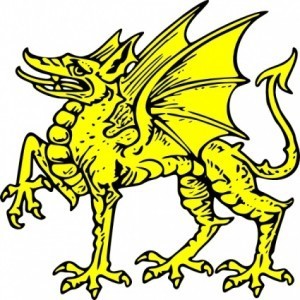 The dragon was said to have nine children. Each had a different temperament. A musical dragon would adorn a two-stringed Chinese violin; one which was quarrelsome would appear on the handle of a sword; one which was scholarly would be carved on a tombstone; one who liked to jump was placed on the corner of a roof; one which liked to eat would be on chopsticks; one which rode would be on a saddle; one which painted would be on a brush; one which like water would be on the stern of a boat; and one which like to run would decorate shoes.
The dragon was said to have nine children. Each had a different temperament. A musical dragon would adorn a two-stringed Chinese violin; one which was quarrelsome would appear on the handle of a sword; one which was scholarly would be carved on a tombstone; one who liked to jump was placed on the corner of a roof; one which liked to eat would be on chopsticks; one which rode would be on a saddle; one which painted would be on a brush; one which like water would be on the stern of a boat; and one which like to run would decorate shoes.
March 30, 2011
Stem word and its modifiers
 Announcement From Dr. Mah:
Announcement From Dr. Mah:I have had several requests from readers for a guide to help them pronounce Chinese characters in pinyin. I have created this pronunciation guide to assist in learning Chinese for those who are interested. You may find the document here.
- Dr. Adeline Yen Mah
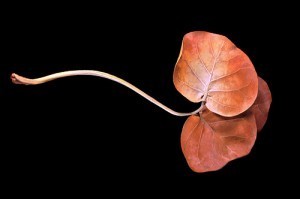 From time to time, I will send you something unique and fascinating about the Chinese language. Today, I want to tell you about Chinese stem words and their modifiers.
From time to time, I will send you something unique and fascinating about the Chinese language. Today, I want to tell you about Chinese stem words and their modifiers.
In the English language, hyphenated words such as absent-minded or cool-headed are occasionally used. Sometimes, two hyphenated words end up merging together and becoming one word. An example of this is the word land mine evolving from land mine to land-mine to landmine.
Although the hyphen is not used in Chinese, it is very, very common for two words to be placed side by side (like a hyphenated English word) in order to express a third concept.
For example, the two words 地理 when coupled together, mean geography. The word 地 by itself means land and 理 means logic or truth, but put the two words 地理 together and the single combination means geography.
Think of 地 as a stem word and 理 its modifier. Among the many other modifiers of the stem word 地 are the words 雷,球,契 and 址。
Taken individually, the word 雷 means thunder. 球 means ball. 契 means contract. 址 means location. Together, the second word modifies the first word 地 to express a third concept.
Thus
地理 = land logic = geography
地雷 = land thunder = landmine
地球 = land ball = earth
地契 = land contract = title deed
地址 = land location = address
'Stem word and its modifiers' forms part of the basic structure of the Chinese language. The stem word is usually the first word and its modifier the second word but not always.
Other examples are the following:
The stem word 电 means electric or electricity. Some of its modifiers are 话 (talk),灯(lamp),线 (thread),脑 (brain),池 (pond),影 (shadow).
电话 = electric talk = telephone
电灯 = electric lamp = light
电线 = electric thread = wiring
电脑 = electric brain = computer
电池 = electric pond = battery
电影 = electric shadows = movies
The stem word 小 means small. Some of its modifiers are 便 (convenient), 产 (lay eggs, birth), 学 (learn), 气 (spiritual energy), 吃 (eat).
小便 = little convenience = urinate
小产 = little birth = miscarriage
小学 = little learning = primary school
小 气 = little energy = stingy
小 吃 = little eats = snack
There are numerous other examples of stem words and their modifiers. They form part of the basic structure of the Chinese language.
March 21, 2011
Nine in One (Cont'd)
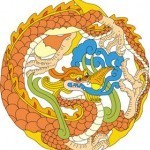 Scholar Wang Fú during the Han Dynasty wrote that the dragon had the characteristics of nine different animals. It had the horns of a deer, the head of a camel, the eyes of a demon, belly of a clam, the scales of a carp, the claws of an eagle, the soles of a tiger and the ears of a cow
Scholar Wang Fú during the Han Dynasty wrote that the dragon had the characteristics of nine different animals. It had the horns of a deer, the head of a camel, the eyes of a demon, belly of a clam, the scales of a carp, the claws of an eagle, the soles of a tiger and the ears of a cow
March 14, 2011
Nine in One
 The number 9, the largest single digit, is associated with the dragon as well as the Emperor in Chinese minds. It is a lucky number in China because it is pronounced the same as another word which means a long time or long life. The dragon is supposed to have 117 scales, 81 yang or male scales and 27 yin or female scales. All these numbers are multiples of nine.
The number 9, the largest single digit, is associated with the dragon as well as the Emperor in Chinese minds. It is a lucky number in China because it is pronounced the same as another word which means a long time or long life. The dragon is supposed to have 117 scales, 81 yang or male scales and 27 yin or female scales. All these numbers are multiples of nine.
March 7, 2011
Emperor's Symbol
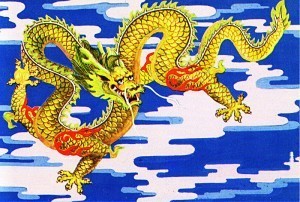 We now think that the dragon idea may have been inspired by the giant Yangzi alligator, or earth dragon which lives in the lower Yangzi River and can grow to a length of nearly 2 meters 6 feet. The alligator is sensitive to changes in air pressure and appears to know when rain is coming.
We now think that the dragon idea may have been inspired by the giant Yangzi alligator, or earth dragon which lives in the lower Yangzi River and can grow to a length of nearly 2 meters 6 feet. The alligator is sensitive to changes in air pressure and appears to know when rain is coming.
EMPEROR'S SYMBOL
Chinese children were told that when the Yellow Emperor died, he became a dragon and flew into Heaven. From then on, the yellow dragon with five claws on each foot became a symbol of imperial power. The Emperor's throne was called the Dragon Throne and his robe the Dragon Robe. Only the Emperor was allowed to wear clothes embroidered with a yellow dragon. In ancient times, any person who dared to wear such robes without permission was suspected of treason and might even be executed.
This is an excerpt taken from "China Land of Dragons and Emperors" by Adeline Yen Mah. This book is available as a free PDF download when you subscribe to Adeline Yen Mah's free Chinese Character A Day Chinese Language and History Lessons. To do so, you may click here.
February 28, 2011
Power Over Storms
The Chinese dragon is a mythical animal which is connected with water and rain fall. In times of drought, government ministers used to offer sacrifices to the dragon and pray for rain. Dragons are also supposed to have power over moving bodies of water such as rip-tides, storms and tornadoes. They fly by magic and occasionally show themselves as twisters or water sprouts.
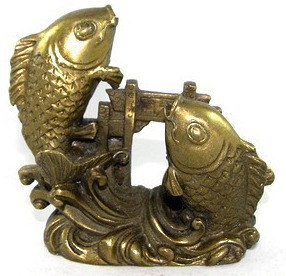 Chinese legend says a fish saw a beautiful mountain and decided to swim to the top. It fought its way upstream, struggled against rapids, overcame waterfalls and finally reached the summit. There it found the stream blocked by a locked gate. Undaunted, the fish jumped over the gate and was immediately transformed into a dragon. Thus an ordinary fish can turn into a dragon if it tries hard enough. (Many waterfalls in China are named Dragon's Gate).
Chinese legend says a fish saw a beautiful mountain and decided to swim to the top. It fought its way upstream, struggled against rapids, overcame waterfalls and finally reached the summit. There it found the stream blocked by a locked gate. Undaunted, the fish jumped over the gate and was immediately transformed into a dragon. Thus an ordinary fish can turn into a dragon if it tries hard enough. (Many waterfalls in China are named Dragon's Gate).
This is an excerpt taken from "China Land of Dragons and Emperors" by Adeline Yen Mah. This book is available as a free PDF download when you subscribe to Adeline Yen Mah's free Chinese Character A Day Chinese Language and History Lessons. To do so, you may click here.
February 23, 2011
Enter The Dragon
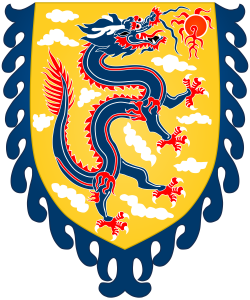 Let's start before recorded history in the mythical times when dragons were supposed to exist. They were said to have the eyes of a demon and the claws of an eagle. They were associated with power over water, with the lucky number nine and with royalty.
Let's start before recorded history in the mythical times when dragons were supposed to exist. They were said to have the eyes of a demon and the claws of an eagle. They were associated with power over water, with the lucky number nine and with royalty.
February 16, 2011
Three World-Changing Inventions
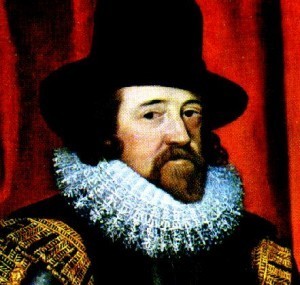 Francis Bacon, the English philosopher known as the `Father of the Scientific Revolution', wrote in 1620 that there were three world-changing inventions: printing, gun-powder and the compass. The first transformed literature, the second warfare, and the third navigation.
Francis Bacon, the English philosopher known as the `Father of the Scientific Revolution', wrote in 1620 that there were three world-changing inventions: printing, gun-powder and the compass. The first transformed literature, the second warfare, and the third navigation.
He died without knowing that all three had come from China.
Presently, one-fifth of the world's population is Chinese, totaling over 1300 million people. There are more Chinese learning English than all the native English speakers on earth. One day China could become the number one English-speaking nation as well as the world's largest manufacturer and consumer. Perhaps it is time to know something about China.
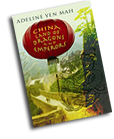 This is an excerpt taken from "China Land of Dragons and Emperors" by Adeline Yen Mah. This book is available as a free PDF download when you subscribe to Adeline Yen Mah's free Chinese Character A Day Chinese Language and History Lessons. To do so, you may click here.
This is an excerpt taken from "China Land of Dragons and Emperors" by Adeline Yen Mah. This book is available as a free PDF download when you subscribe to Adeline Yen Mah's free Chinese Character A Day Chinese Language and History Lessons. To do so, you may click here.
January 31, 2011
Chinese New Year
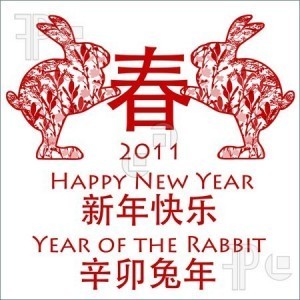 This is the most important holiday in China – like Christmas, New Year's Day, and Thanksgiving combined. It has been celebrated for over 4000 years. In ancient times, it was the only holiday for farmers, labourers, maids and soldiers. The rest of the year they worked around the clock seven days a week.
This is the most important holiday in China – like Christmas, New Year's Day, and Thanksgiving combined. It has been celebrated for over 4000 years. In ancient times, it was the only holiday for farmers, labourers, maids and soldiers. The rest of the year they worked around the clock seven days a week.
The actual date is not fixed because China used a lunar (moon-based) calendar. It's on the first day of the first moon and falls between 21 January and 19 February. The exact date used to be announced by the Emperor himself. As the Son of Heaven, only the Emperor had the right to set the calendar. It was a major event because farmers planted their crops according to the Emperor's calendar. If the calendar was correctly set and the growing season was successful, there would be plenty of food.
Chinese families spent weeks getting ready for New Year. They would clean house, pay bills, bathe, have their hair cut and put on new clothes, usually red in colour. In the old days, many poor people could afford to eat meat only once a year. They would save their copper coins and go hungry the rest of the year for this special occasion. The main meal was eaten at a round table. If someone was absent, a place would be set for him anyway in front of an empty chair.
The holiday is celebrated in much the same way now. Special foods include rice cakes, pork, noodles, fish and dumplings stuffed with chives and pork. There is a special dessert called Eight Treasure Pudding which signifies family union. It is made with sticky rice, lotus seeds, red dates, dried candied fruits and red bean paste. In the afternoon, people visit family and friends and exchange gifts. Children are given lucky money in red envelopes.
On the streets there may be a lion dance or a dragon parade, accompanied by beating drums, cymbals, dancers, acrobats, jugglers, and musicians. Firecrackers are supposed to scare away evil spirits. In the evenings, colourful lanterns dot the storefronts and fireworks light up the sky.
Chinese New Year celebrates family and friends, and symbolises good luck and a new beginning. It is the most important holiday in China.
CHINESE ZODIAC
Chinese Zodiac relates each calendar year to an animal and its reputed attributes, according to a 12-year cycle.
The twelve animals are the following:
Rat
Ox
Tiger
Rabbit 1975, 1987, 1999, 2011 are Rabbit Years
Dragon
Snake
Horse
Ram
Monkey
Rooster
Dog
Pig
Legend has it the twelve animals were chosen by Buddha. He summoned all the animals and announced that the first twelve would be included in the Chinese Zodiac. The rat came first, the pig last and all the other animals came in between.
One polite way of finding out someone's age in China is to ask that person, `Under which animal sign were you born?' If she says, `Rabbit', you'll know she was born in 1999, 1987, 1975, 1963 … and so on.
Chinese New Year will fall on February 3rd, 2011. This is the year of the Rabbit.
Last year (2010) was the year of the Tiger and next year (2012) will be the year of the Dragon.
People born in the Year of the Rabbit are talented and affectionate. They are admired and trusted by others. Though fond of gossip, they are tactful, kind, wise and good-natured. Most compatible with those born in the Year of the Goat, Pig or Dog.
VOCABULARY
Rabbit = tù兔 is pronounced in the fourth tone like the word two.
Year = niάn 年 is pronounced in the second tone .
兔 年 = Year of the Rabbit
New = xīn 新 is pronounced in the first tone
新 年 = New Year
China = zhōng 中 guŏ 国
CHINESE NEW YEAR = 中 国 新 年
January 24, 2011
Special News: Obama's Daughter Sasha Practices Chinese with President Hu
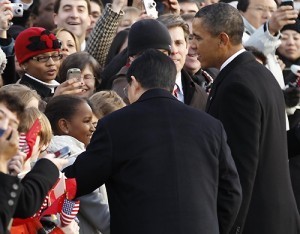 Hello Readers! I thought you might find this story about Sasha Obama and Chinese president Hu 胡 Jintao 锦 涛 cute. I wonder what Sasha said to President Hu?
Hello Readers! I thought you might find this story about Sasha Obama and Chinese president Hu 胡 Jintao 锦 涛 cute. I wonder what Sasha said to President Hu?
Obama's daughter, Sasha, practices Chinese with Hu
WASHINGTON (Reuters) – Talk about a high level language exchange.
President Barack Obama's nine-year-old daughter, Sasha, wanted to test her developing Chinese skills this week while Hu Jintao was in town.
Just whom did she want to practice them with?
The Chinese president himself, according to a White House official who recounted the story on Thursday after a formal state dinner the previous night.
"The president pointed out last night at the state dinner that his daughter, Sasha, is a very young girl but her class is studying Chinese," Ben Rhodes, a White House deputy national security adviser, told a video conference with Chinese bloggers.
"She's under 10 years old and they're studying Chinese, and she wanted to have the chance to practice her Chinese with President Hu."
Sasha attended Hu's welcoming ceremony on the White House lawn on Wednesday morning with friends and could be seen waving a Chinese flag excitedly as her father and Hu walked around the grounds.
The two presidents paused to visit when they reached the nine-year-old and her friends behind the rope line.
"Not every (child) has the opportunity to try out their first phrases of Chinese with the president of China, but she had that chance," Rhodes said.
He said the anecdote illustrated Americans' desire to get to know China better with more people studying the country and doing business there.
(Reporting by Jeff Mason; Editing by Vicki Allen)
Adeline Yen Mah's Blog
- Adeline Yen Mah's profile
- 643 followers



